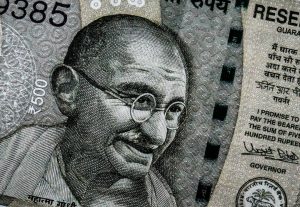Common Red Flags of Forex Frauds and How to Spot Them
Forex trading is a highly lucrative market, with trillions of dollars being traded every day. This immense popularity has unfortunately attracted some unscrupulous individuals and companies who seek to defraud unsuspecting traders. Forex frauds can cause significant financial loss and damage to a trader’s reputation. However, by being aware of the common red flags, traders can protect themselves from falling victim to these scams.
1. Unrealistic promises of high returns: One of the most common red flags of forex frauds is the promise of guaranteed high returns with little or no risk. Forex trading involves a level of risk, and no legitimate company or individual can guarantee consistent profits. If an offer sounds too good to be true, it probably is.
2. Lack of regulation: Legitimate forex brokers and companies are regulated by financial authorities in their respective countries. These regulations ensure that the company follows specific standards and safeguards the traders’ interests. Before investing, traders should always check if the broker or company is licensed and regulated by a reputable financial authority.
3. Pressure to invest quickly: Scammers often use high-pressure tactics to push traders into making quick investment decisions. They might claim that the opportunity is only available for a limited time or that they have insider information that guarantees profits. Legitimate forex brokers will never rush traders into making investments and will always provide ample time for research and decision-making.
4. Poor transparency: Transparency is crucial in the forex market. If a broker or company is evasive about providing information regarding their business practices, trading strategies, or customer support, it should raise a red flag. Legitimate brokers are transparent about their operations and are willing to answer any questions or provide necessary information.
5. Unregistered or offshore brokers: Some forex frauds operate through unregistered or offshore brokers. These brokers often promise lower transaction costs or tax benefits. However, trading with unregistered or offshore brokers can leave traders vulnerable to scams as they lack regulatory oversight. It is always advisable to trade with brokers that are registered and regulated in the trader’s home country.
6. Poor customer reviews and ratings: Before choosing a forex broker or company, it is essential to research their reputation. Check for customer reviews and ratings on trusted websites and forums. If there are consistent complaints about withdrawal issues, trade manipulation, or poor customer service, it is a clear indication of potential fraud.
7. Lack of proper risk disclosure: Legitimate forex brokers always provide comprehensive risk disclosures to their clients. These disclosures inform traders about the risks involved in forex trading and the potential for financial loss. If a broker downplays the risks or fails to provide proper risk disclosures, it is a sign of a potential scam.
8. Cold calling and unsolicited investment offers: Reputable forex brokers do not engage in cold calling or unsolicited investment offers. If someone contacts you out of the blue, claiming to be an expert trader or offering investment opportunities, be cautious. Scammers often use these tactics to target unsuspecting individuals and convince them to invest.
In conclusion, forex frauds are prevalent in the market, but by being aware of the common red flags, traders can protect themselves from falling victim to scams. It is crucial to conduct thorough research, choose regulated brokers, and exercise caution when approached with too-good-to-be-true offers. Remember, if something seems suspicious, it is always better to err on the side of caution and avoid potential financial loss and heartache.






